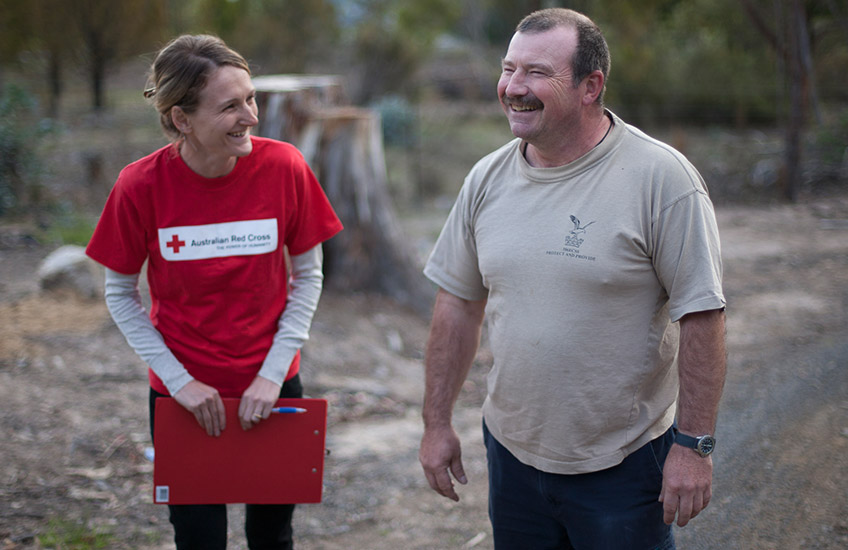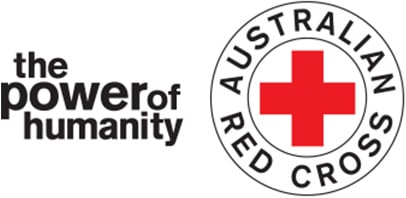
We are mindful of the need for robust insurance and risk mitigation structures, as our people may work anywhere from offices to emergency zones.
Australian Red Cross/Rodney Dekker
Upholding compliance standards
Australian Red Cross is committed to achieving best practice in its management of program funding and corporate governance for not-for-profit organisations.
Our work is guided by additional codes of conduct and standards, which we observe and adhere to.
Fundraising industry compliance
As a member of the Fundraising Institute of Australia (FIA), Australian Red Cross is bound by, and acts in accordance with its Principles and Standards of Fundraising Practice. In addition, Red Cross takes a leadership role in the fundraising sector with active participation in special interest groups including the PFRA (Public Fundraising Regulatory Association) and the FIA Sustainability Task Force.
Australian Council for International Development (ACFID)
Australian Red Cross is a member of the Australian Council for International Development and applies the principles of the ACFID Code of Conduct for Non-Government Organisations, which sets minimum standards of governance, management and accountability for member agencies. Adherence to the code is monitored by an independent Code of Conduct committee.
Australian Charities and Not-for-profits Commission (ACNC)
Australian Red Cross is registered with the independent national regulator of charities, the Australian Charities and Not-for-profits Commission, under ABN 50169561394.
Legislative compliance
Red Cross operates in a complex legal environment and complies with all relevant state and federal laws.
Work health and safety
Ensuring the wellbeing of our people and clients is always a priority. Our work health and safety structures need to be wide-ranging in order to service our work in offices, Australian and overseas communities, and on the frontline of emergencies.
Responses in our 2016 staff engagement survey suggest that we are succeeding in our work health and safety initiatives, with an 88% favourable response to the statement “my work area is a safe place to work”. We have driven improvements to safety through compulsory e-learning modules which all staff and volunteers must complete. 92% of staff have now completed these modules.
Child protection
Our robust child protection policy ensures all staff, as well as volunteers and contractors abide by best practice when working with children. The policy is supported by an innovative training program which strengthens our people’s skills in working with families to keep children safe and well. We worked with the global Red Cross Red Crescent movement to produce an online child protection course that is now available to Red Cross Red Crescent staff and volunteers around the world, and has supported the development of other Red Cross societies’ child protection frameworks. Here in Australia, we contributed to the Children’s Rights Report 2015 by the National Children’s Commissioner, and invited the Commissioner to chair an informative panel discussion with our staff and volunteers during Child Protection Week.
Operating ethically
Our fundamental principles and ways of working are embedded in our organisational identity and strategy, providing an ongoing compass to guide who we are and how we work. All volunteers and staff sign a code of conduct when they commence working with us, stating that they will carry out their work with respect, integrity and accountability. We intend to broaden the code to include members in the coming year.
We acknowledge climate change and adapt our practices to reduce its impact. We are mindful of recycling items wherever possible; for example, our offices provide special recycling bins for imaging consumables like printer toner cartridges, with support from Close the Loop and Cartridges 4 Planet Ark. We use recycled paper across all our offices; this annual report is also printed on 100% recycled paper.
We are keenly aware of the disproportionate disadvantages faced by Indigenous Australians and seek to improve their circumstances wherever possible. This year we worked collaboratively with Indigenous organisations to increase procurement from Aboriginal and Torres Strait Islander businesses. Nallawilli Office Wares (a 100% privately owned Indigenous business) is one of our main stationery suppliers, and an Indigenous-owned business was selected to fit out our new office in Darwin. These initiatives are supported through our relationship with Supply Nation, the leading directory of Indigenous businesses, with rigorous registration and certification processes to ensure Indigenous ownership.
Risk management and mitigation
Our brand tracking research indicates that Australian Red Cross is the most highly trusted and respected of all Australian not-for-profit organisations. Our positive reputation is our greatest strength and we have extensive risk management policies to protect our public standing as well as our people, beneficiaries and finances.
Our customised risk management framework, ‘RiskSmart’, is modelled on the global AS/NZS ISO31000:2009 standard. Through the oversight of our Audit and Risk Committee, together with comprehensive external auditing by Deloitte and internal auditing by Ernst & Young, we ensure that we are operating to the highest standard and using effective risk management techniques.
To deal proactively with an increasingly litigious environment, this year we worked more closely with liability insurers and staff to educate them on liability risks involved in signing leases and contracts. We increased our focus on strategic and long-term risks, and gave greater accountability for these to our executive staff. In the coming year we will be focusing on cyber-security and mitigating risks in our information technology systems.

